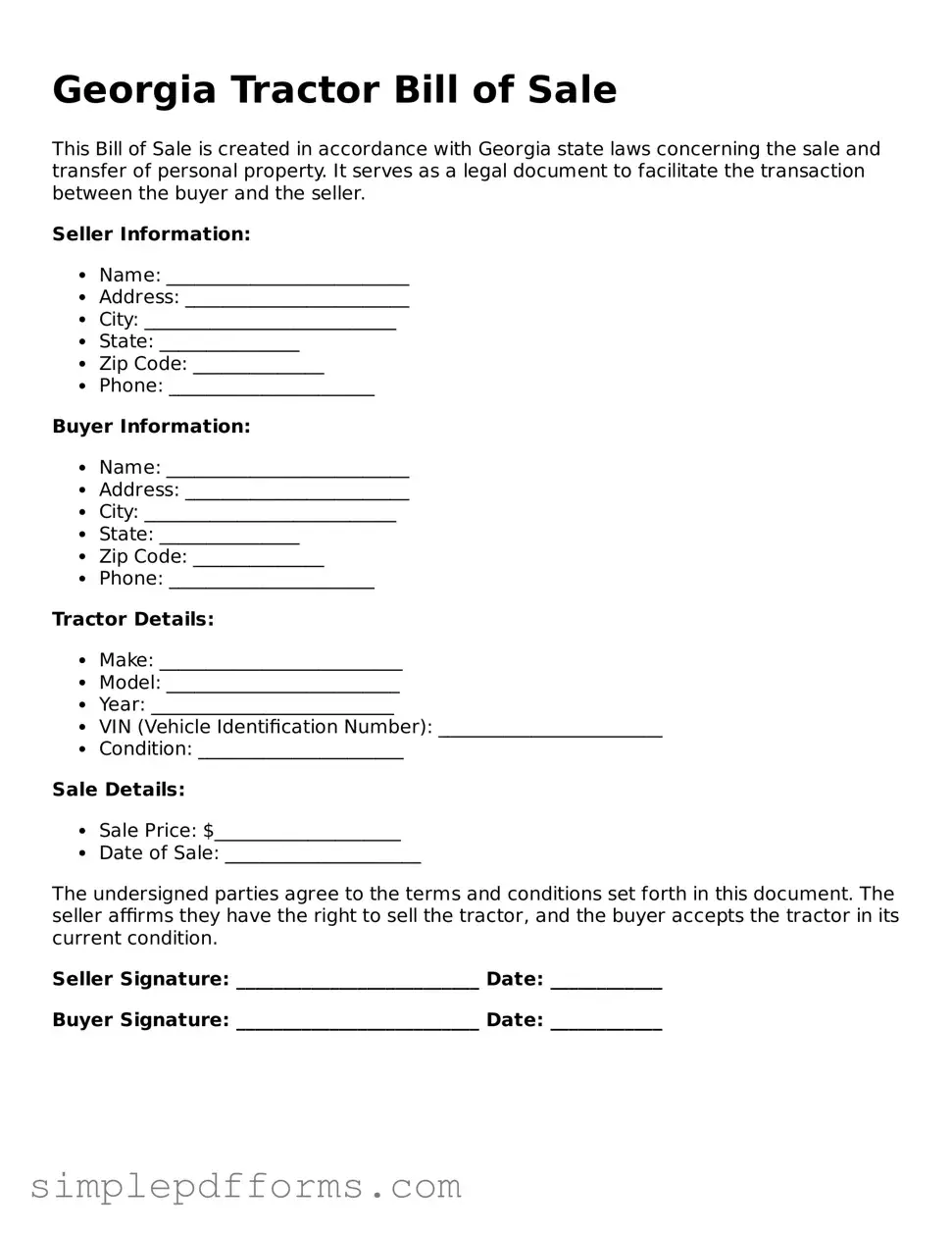Attorney-Verified Tractor Bill of Sale Document for Georgia State
The Georgia Tractor Bill of Sale is a legal document used to transfer ownership of a tractor from one party to another. This form outlines essential details about the transaction, including the buyer, seller, and the specific tractor being sold. Understanding this document is crucial for both buyers and sellers to ensure a smooth transfer of ownership and to protect their interests.
Open Tractor Bill of Sale Editor Now

Attorney-Verified Tractor Bill of Sale Document for Georgia State
Open Tractor Bill of Sale Editor Now

Open Tractor Bill of Sale Editor Now
or
Get Tractor Bill of Sale PDF Form
Your form is waiting for completion
Complete Tractor Bill of Sale online in minutes with ease.